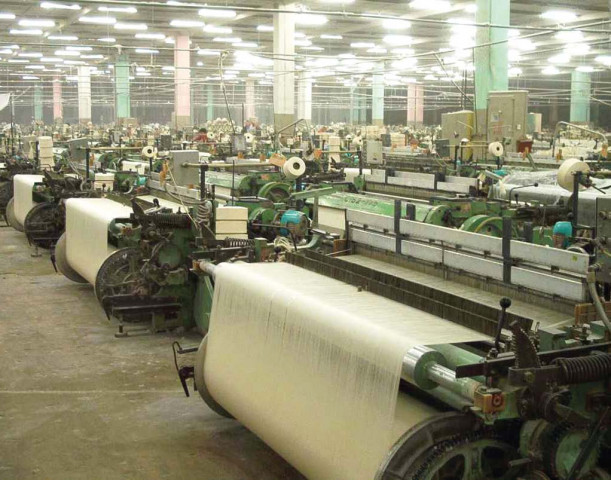Comparative advantage: American buyers still prefer Pakistani apparel
Locally grown cotton, cheaper labour and developed industry bring in US business.

The cost differentials can be as high as 25%, substantial in an industry that generally operates on low margins for exporters. For example, a hooded sweatshirt, which is made at the rate of $12 a piece in China, is manufactured in Pakistan for $9 to $10. Similarly, a pair of jeans, whose manufacturing cost is $10 in China, costs $8 to $8.50 in Pakistan.
Edward Hertzman, director of business development at Synergies Worldwide, a global sourcing company, explains why that is. “The cost of labour in Pakistan is less than China, India and Vietnam,” said Hertzman, whose company placed $75 million worth of orders with Pakistani textile companies last year.
“As opposed to Bangladesh, Pakistan has its own supply of cotton and fabric, and has more small and medium-size factories. So it is able to accommodate smaller volumes and shorter lead times, which suites the American market,” Hertzman said.
Synergies Worldwide represents about 35 European and American brands and deals with over 80 factories in Pakistan besides operations in India, China and Bangladesh.
Top American brands currently outsourcing their apparel manufacturing to Pakistan include American Eagle, Abercrombie & Fitch, Hollister, Nike, Quicksilver, Kohl’s, Sears, Wal-Mart, Gap, Old Navy and Macy’s.
“The perception is that Pakistan is a difficult and dangerous place to work. That’s not true. I travel to Pakistan at least four times a year. I think Pakistan is a serious place to do serious business,” Hertzman said.
The tariff exemptions that Bangladesh receives from the European Union, under the Generalised System of Preferences (GSP), seems to actually count against Bangladeshi manufacturers among American buyers, since it means that their production capacity was used mainly by large European retailers, leaving little spare capacity for any American firms that want to buy from there.
Also, the lack of domestic cotton production capacity makes it difficult to operate a “just in time” logistics system with Bangladesh, a system that US retailers are used to.
“Americans need to understand that Bangladesh works best when running large, continuous programmes. Also, the buyer must plan for longer lead times for Bangladesh, as the fabric is imported and capacity is booked months in advance,” said Hertzman.
Meanwhile, the cost of apparel manufacturing has increased in China in the recent past. The government raised the minimum wage up to 21% in Jan 2011. With the renminbi getting stronger in the international market, Chinese products are becoming increasingly expensive for foreign buyers.
On the contrary, the Pakistani rupee has been depreciating, making the country a choice outsourcing destination.
Talking to The Express Tribune, Khurram Khalid, who works for an international buying house in Karachi, said China was gradually moving away from textiles. “Chinese are smart people. They know the real money is in hi-tech. Their economy is growing, so they’re moving towards production of specialised goods.”
Another advantage that Pakistan has over its competitors, especially Bangladesh, is good quality, home-grown cotton. Pakistan produces short-staple cotton, which is good for denim, flannels, fleece, knits, polo shirts and t-shirts.
Pakistan also produces fashion goods and niche products better than Bangladesh. “Pakistan has excellent washing, dyeing and finishing techniques, enabling it to create fashion-forward, value-added garments,” Hertzman said.
The readymade garment industry in Pakistan enjoys facilities like duty-free import of machinery and income tax exemption. The Textile Institute of Pakistan also introduced first-of-its-kind, four-year BBA (Honours) in apparel manufacturing and merchandising a few years ago to meet the demand of the apparel industry.
Published in The Express Tribune, October 24th, 2011.


















COMMENTS
Comments are moderated and generally will be posted if they are on-topic and not abusive.
For more information, please see our Comments FAQ